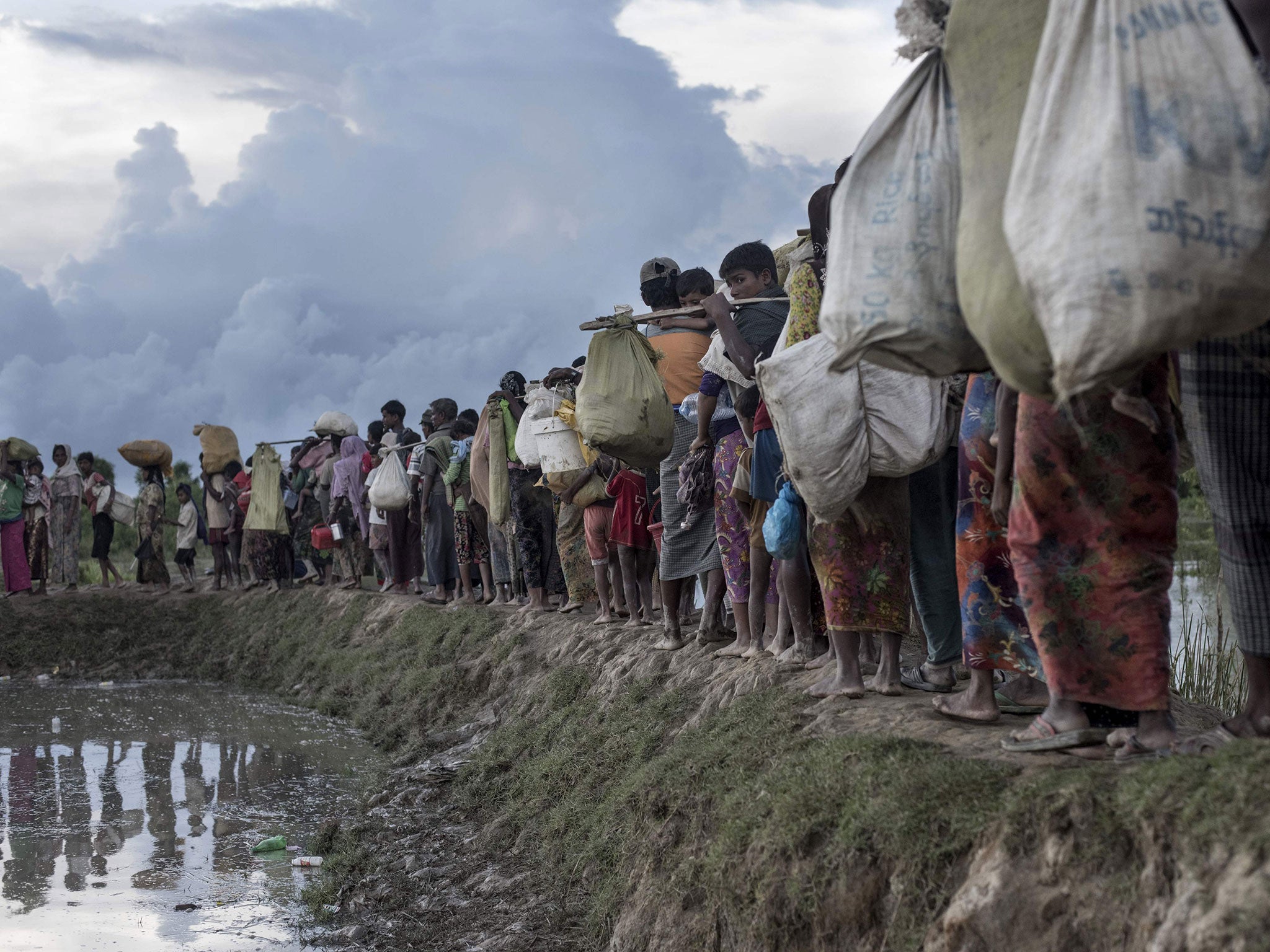Myanmar leader Aung San Suu Kyi seeks humanitarian help for Rohingya crisis as she is greeted in Australia with protests
Nobel Peace Prize laureate accused of crimes against humanity

Your support helps us to tell the story
From reproductive rights to climate change to Big Tech, The Independent is on the ground when the story is developing. Whether it's investigating the financials of Elon Musk's pro-Trump PAC or producing our latest documentary, 'The A Word', which shines a light on the American women fighting for reproductive rights, we know how important it is to parse out the facts from the messaging.
At such a critical moment in US history, we need reporters on the ground. Your donation allows us to keep sending journalists to speak to both sides of the story.
The Independent is trusted by Americans across the entire political spectrum. And unlike many other quality news outlets, we choose not to lock Americans out of our reporting and analysis with paywalls. We believe quality journalism should be available to everyone, paid for by those who can afford it.
Your support makes all the difference.Myanmar’s de facto leader Aung San Suu Kyi has requested humanitarian support for the Rohingya during a summit with regional leaders, even as she was herself greeted with street protests and accused of failing to prevent crimes against humanity towards the persecuted Muslim minority.
Ms Suu Kyi has faced international criticism of her handling of the Rohingya refugee crisis, which has seen at least half a million flee Myanmar’s north-west Rakhine state amid a crackdown by authorities.
The Myanmar state counsellor met with Australia’s Prime Minister, Malcolm Turnbull, in Canberra on Monday. Mr Turnbull had said he would raise human rights during the visit, and said it was also discussed during a summit of the Association of Southeast Asian Nations (Asean) in Sydney over the weekend.
“Aung San Suu Kyi addressed the matter comprehensively at some considerable length herself,” Mr Turnbull said.
“So our goal is to support a peaceful and speedy resolution of the humanitarian problems, the humanitarian disaster truthfully that has resulted from the conflict.”
Ms Suu Kyi has been in Australia since Friday. On her arrival in the country, she was presented with a lawsuit accusing her of crimes against humanity.
Australia’s Attorney General said he would not allow the lawsuit, lodged by activist lawyers in Melbourne on behalf of Australia’s Rohingya community, to proceed because Ms Suu Kyi had diplomatic immunity.
Since coming to power in 2016, Ms Suu Kyi, who won the 1991 Nobel Peace Prize for her struggle for democracy in Myanmar, has faced growing criticism for failing to condemn or stop military attacks on her country’s minority Rohingya Muslims.
Many Rohingya have fled from Buddhist-majority Myanmar to neighbouring Bangladesh since August after the military responded to insurgent attacks on police with a clearance operation that the United Nations has described as ethnic cleansing.
The military campaign has included the burning of Rohingya villages, systematic rape, shootings and other rights violations.
Myanmar denies the charges of genocide and has asked for “clear evidence” of abuses by security forces.
Mr Turnbull said Ms Suu Kyi had used the weekend summit to seek humanitarian help from her fellow members of Asean and Australia to deal with the refugee crisis.
Malaysia’s Prime Minister, Najib Razak, told the summit the refugee crisis was no longer solely a domestic issue for Myanmar, as fleeing Rohingya could be prime targets for terrorist radicalisation. British Foreign Secretary Boris Johnson has previously expressed similar concerns.
Although Ms Suu Kyi has been the de facto head of Myanmar’s civilian government since her party took power, she is limited in her control of the country by a constitution written by the outgoing junta.
The military has effective veto power over all legislation and controls key ministries, including those overseeing security and defence.

Unlike the UN, Britain and the United States, Australia has not accused Myanmar of “ethnic cleansing” or “crimes against humanity”.
But Australia did support a UN resolution in December condemning the “very likely commission of crimes against humanity” by Myanmar security forces against the Rohingya.
Human rights groups have criticised Australia for maintaining its limited military engagement with Myanmar.
Australia provides English-language lessons and training courses to Myanmar officers to “promote professionalism and adherence to international laws”, according to the defence department.
However, Australia maintains a long-standing arms embargo with Myanmar.
Additional reporting by agencies
Join our commenting forum
Join thought-provoking conversations, follow other Independent readers and see their replies
Comments